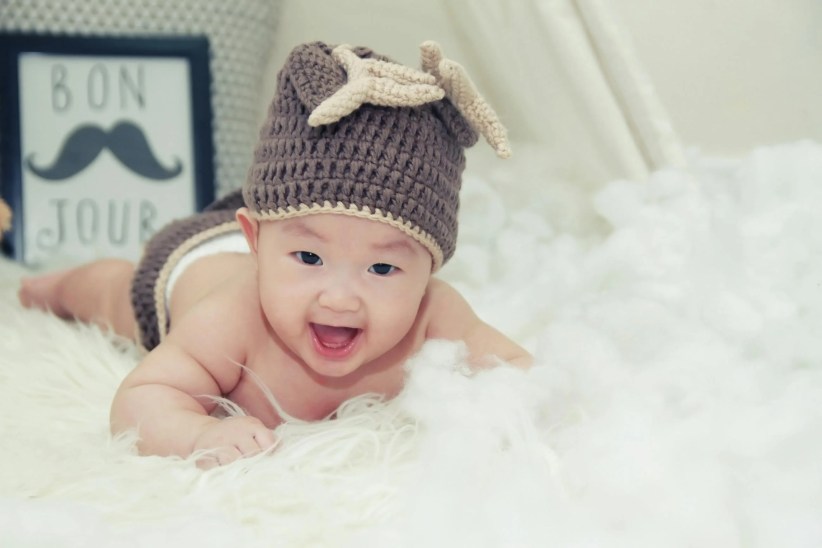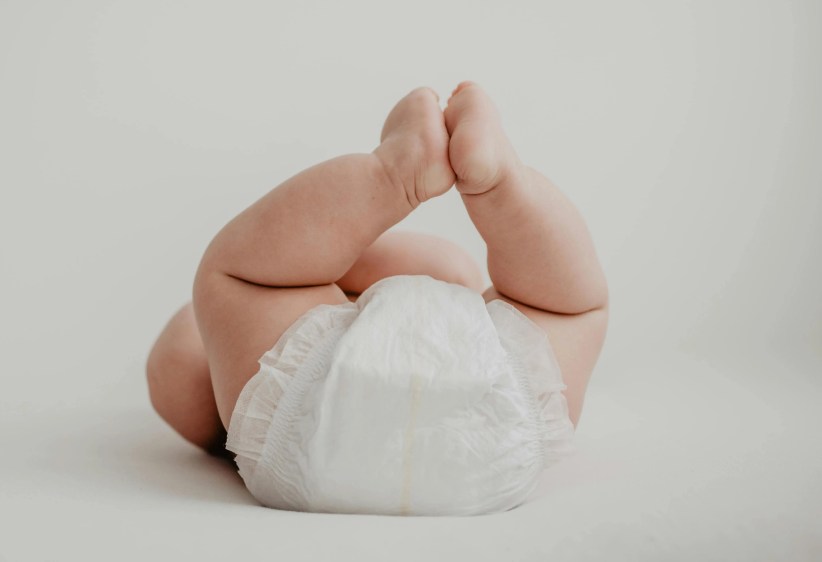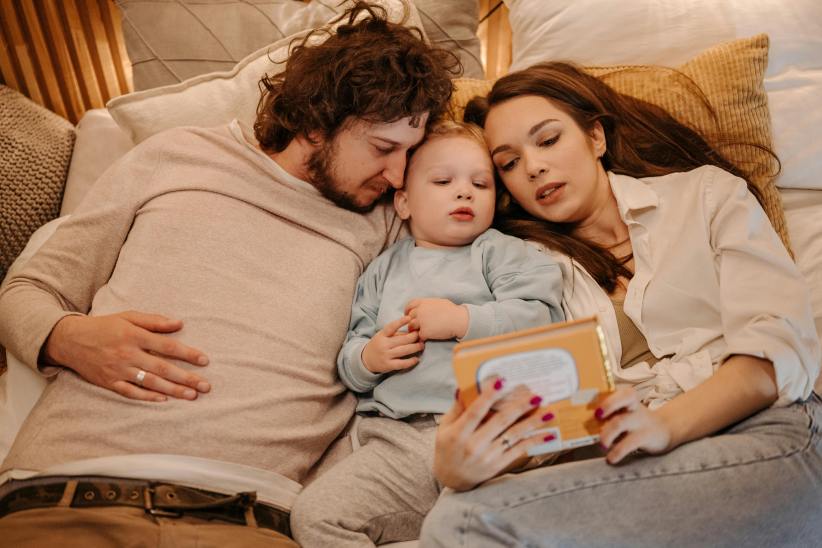
In July 2010, New York magazine contributing editor—and local mom—Jennifer Senior set the parenting realm abuzz with a cover story for New York entitled “All Joy and No Fun: Why Parents Hate Parenting.” The premise? That raising a child in the modern world involves sacrificing much of the good (or “fun”) parts of one’s old life in order to reap the high rewards (“joy”) of having a child. Propelled by the vast and varied responses to the story, as well as her own curiosity, Senior set to work on a book to dig deeper into the effects that children have on their parents. The result is her debut book, All Joy and No Fun: The Paradox of Modern Parenthood, which was released at the end of last month. Carefully researched and full of relatable stories of real families from around the country, Senior’s book not only serves as a very readable exploration through essential parenthood experiences–from dealing with disobedient toddlers to enjoying the ineffable bonds that exist between parents and children–but also leaves readers with the implicit message that their confusion and exhaustion and chaos is–in her words–“utterly normal.”
Your new book is based on a 2010 New York magazine article. Was there a particular moment that sparked your interest in the topic of modern parenthood?
The origin of the article was not grounded in my experiences as a parent. It pre-dated that, which is weird. I, in 2006, was assigned a particular article for New York Magazine, which was to take a much more skeptical look at this thing called “positive psychology…” Along the way I read a really great book: Daniel Gilbert’s Stumbling on Happiness…and there were 2.5 pages towards the very end that happened to mention that children did not improve parents’ happiness—they might even slightly compromise it. [In] 2006—I was just starting to date the guy who is now my husband, and I didn’t know yet that we were going to get very serious very quickly and have a kid—and all I wanted in life was a kid, so I found this finding totally improbable. I was shocked. I just thought it was bonkers. Right then and there I wanted to write a story about it for New York magazine, but I knew there would be this huge credibility gap between me and the readers… So, I waited until I had a child to write about it.
What other assumptions about motherhood did you have before having a child? Which were correct?
The one that was correct was that I would wake up and know exactly what I was doing every day. And I mean that, there was going to be more motion in my life, there was going to be this forward vector… I always kind of craved having someone to be doing something for.
How old is your own son now? What is he like?
He’s six! He’s a quant. Narrative is not particularly interesting to him. Language is interesting to him in the sense that it’s a system. He likes math, and he likes music. He’s funny and weird—because, god!, 6-year-old boys are so weird! He’s much more perceptive and sensitive to the dynamics between people in the home than I would have imagined a child that age could be. I’m a step-mom too. My step-kids are fully grown.
When did you decide that the response to the original article warranted a follow-up?
It was a combination [of factors]. The response [to the original article] definitely showed me that there was a pent-up demand to talk about it. I also realized that there wasn’t very much out there about this… And, one of the best criticisms I got to that story was that it was written from the perspective of someone who’s a new parent, and the real hardships in parenting come down the road.
Was there a unifying thread you were looking for when you chose your interview subjects?
No. I wasn’t looking for any particular cut… I just chose the ones who had a lot to say and who were interesting and who were thoughtful and not exhibitionists or would have wanted to be on reality television. They were more candid without being performance-oriented about their thoughts. They’re the best–the ones who are just introspective and deeply warm and likable and real and relatable [but] don’t seem self-important about it. I really looked for those people.
Were there any interviewees you found yourself really relating to personally?
The answer is: I related personally to everyone and also to no one. Because everybody spoke to certain themes that I really got, and there were certain people that I totally dug–who I really, really liked. But also, my own parenting situation is very idiosyncratic. I’ve got much older step-kids and a very young kid and my husband is doing this for the second time–so that’s not a situation that’s so common. I knew that I wasn’t going to necessarily be able to draw very much from my own experience, which is why I kept it almost entirely out of the book. You don’t know I’m a step-mom unless you really read between the lines in the acknowledgements.
Were there any pieces of research that really surprised you?
It’s a banal thing—but it surprised me that there was any body of work at all that looked at how often toddlers and preschoolers listened to their parents. That it existed was completely surprising to me. And that it had been quantified how infrequently teeny, teeny kids listened to their moms—these were mostly mother-child studies—was shocking.
How did you organize the book?
[The chapters] were chronological, I thought it would be a mistake to lump in whatever challenges one faces in the toddler years with the ones in the adolescent years. The pandemonium [of the toddler years] is very different from the existential crises when a child is 14. Then, it just became a question of figuring out what the predominant challenges were. The transition to parenthood means that you’re going to have a crisis about your own autonomy and probably one within your marriage. Your marriage is going to take a hit. Then in the middle years it seemed like the dominant theme was how are you going to ready your kid for the world to come.
Did you have a favorite section to work on?
The adolescents’ chapter because I knew the least about it—it was the most research. I knew about it from the perspective of step-parenting but that is so totally not the same. It’s such a different dynamic. Most of my friends are not there yet. They’re either right before it or on the cusp of it [with their kids], but they’re not in it.
Was there a section that you found most challenging?
That [same] one—ha! It took me the longest, by far, to put together.
 In talking to parents of adolescents, did they seem to think raising an adolescent was harder than the toddler years?
In talking to parents of adolescents, did they seem to think raising an adolescent was harder than the toddler years?
I don’t think that anyone thinks the toddler years are harder—they’re more draining, they’re more physically exhausting, they’re more chaotic—and I think they probably hurt your nerves in a different way. But I think everyone is nostalgic for the toddler years—it’s impossible not to be. I’m nostalgic for the toddler years and my kid’s six… But, the thing about being the parent of an adolescent is that it is kind of amazing to see this full person in bloom, to see them becoming wise, but it’s also more challenging because the stakes are so much higher. The anxiety associated with those years is much more intense. But, the shocking beauty of a human being turning into something approaching an adult, it can’t be matched. That’s when the high cost and the high rewards are really both elevated.
How do you predict the generation of kids featured in this book will react to the dynamics they’re being raised in?
I have to imagine that they’ll react, just because that’s what all of us [in my generation] did. Our parents had kids very young, so we had them old. Our parents were hands-off so we were more hands-on… in the United States, we don’t have any folk wisdom to rely on or turn to. We don’t tend to talk to our mothers about how to raise kids, we tend to look to professionals, and the ideas from professionals are always changing…the role of the parent is undergoing this huge historic transformation, and same with the role of the kid. It’s only very recently that kids stopped working and we started aggressively sheltering them.
The point about children being “economically useless but emotionally priceless” was interesting. When do you think the most pivotal time period for that shift in parenting attitudes was?
The Progressive Era [approximately 1890-1920] really made it clear that kids had rights, that they deserved sheltering, that the priority for them should be going to school, not going out and kicking in to the family till. That was a very huge deal because it suddenly meant that kids became expensive to you, rather than being economic assets to you.
Did you have an over-arching message that you hoped readers would take away?
You are not alone! Seriously. I just wanted people to read it and think: “This is how I feel!” Or: “My husband and I totally do that!” Or: “I thought it was only me and I’m so delighted to know that it’s not only me, I’m so relieved!” I love articulating how people feel… I like being able to sum up feelings.























